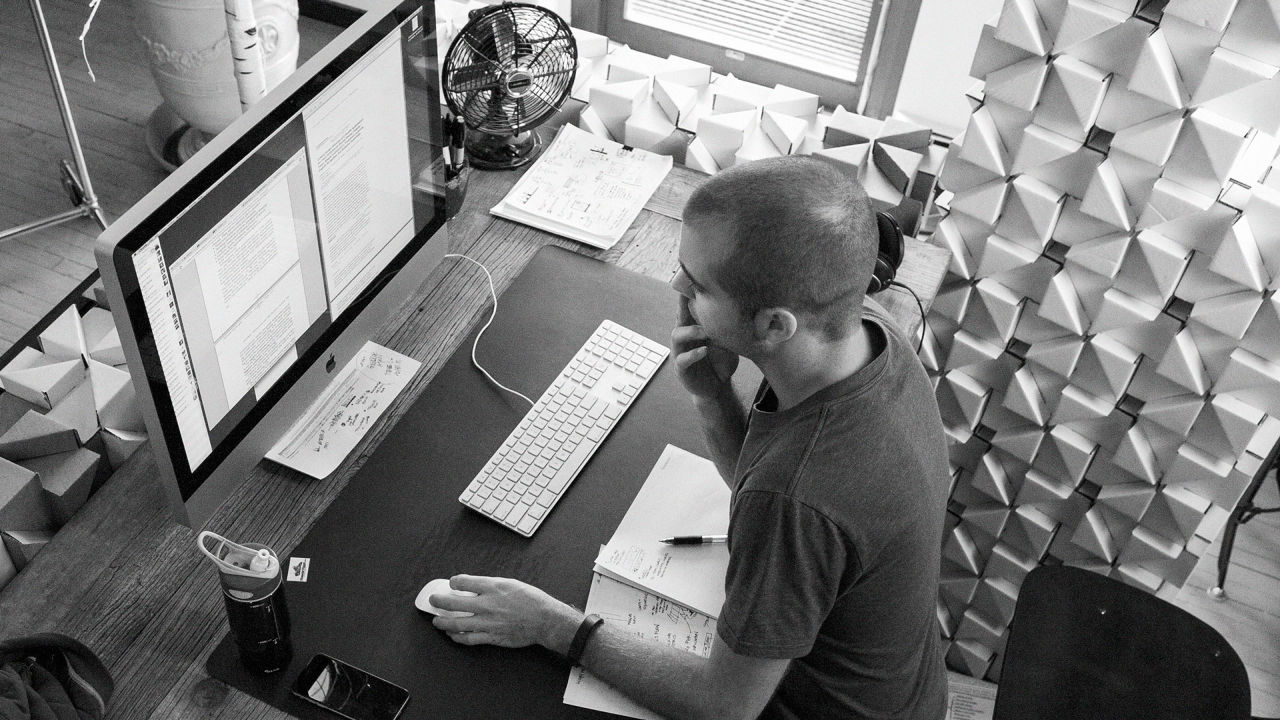6 Questions That Can Eliminate Busywork And Boost Your Productivity
Forty percent of U.S. employees feel overworked or burned out, according to the Staples Business Advantage Workplace Index 2016. The report also found that the majority of employees (59%) believed that decreasing their workload could lead to less workplace stress.
But anyone who’s avoided a deadline by working on “inbox zero,” or overhauling their entire filing system, knows that there is work that needs to be done and work that we use to fill our time—aka “busywork.” Sometimes they can feel similar, but chances are, you can eliminate some of the day-to-day grind through delegating, rescheduling, or ditching a task altogether, says executive coach Gretchen Pisano, CEO of p.Link Coaching Center.
“You may be operating in continuous overdrive,” Pisano says. “There is strength and satisfaction in achievement, i.e., the successful accomplishment of an effort, however, a strength in excess is experienced by others as a weakness,” she says. Pisano believes that healthy striving balances our need for achievement with our need for downtime, connection with others, and good old-fashioned joy in the moment.
So, if you’re ready to cut back on your daily tasks, here are six important questions to ask—and what the answers might be telling you.
1. Is This Task Important To My Customers And Responsibilities?
If the task is an expectation of your job or relevant to internal or external customers, you’re stuck, says S. Chris Edmonds, founder of corporate culture consultancy The Purposeful Culture Group and author of The Culture Engine.
Just deal with it, and apply yourself fully to ensure you deliver what’s expected, he says. Even if doing the task isn’t fun or exciting, meet the deadline. Then, look for more long-term fixes if you really hate the task.
2. Is It Worth The Extra Time, Even If I Love Doing It?
“I’m a formatting freak,” Edmonds says. He admits to spending a great deal of time editing the look, feel, pagination, and spacing of articles, reports, webpages, and other work—more than the job truly requires. However, he likes his work to look clean, easy to read, and professional.
But if spending time laboring over unnecessary design stuff causes him to miss promised deadlines, he’s damaging his credibility more than helping it. Sometimes, good enough is good enough.
3. Would Anyone Notice If I Quit Doing This Task?
Edmonds says it’s important to ask whether the task is something that really needs doing. Who would miss it if you didn’t do it anymore? Sometimes, work that “feels” important really isn’t.
Case in point: Edmonds worked with an executive team of a large corporation that was evaluating every task and activity so they could free up time and resources to focus on further managing their culture. The executive administrator had been producing a report from the team’s weekly meetings for years. The report summarized decisions and assignments, issues to defer until the next meeting, etc. Each week, producing the report took about two hours, and as part of this “time-saving” effort, she decided to stop doing it but didn’t tell anyone.
A few weeks later, one of the senior leaders asked, “Didn’t you used to do a meeting summary report for us?” She said yes. He said, “Why did you stop doing it?” She said, “Apparently no one reads it—it took you a month to even remember I used to do it for you.” They all agreed that the report was not important, he says.
4. Is This A “Maintenance” Task Or A “Strategically Important” Task?
If you’re tied down to doing a lot of repetitive activities—those things you’ve always done, are used to doing, or are good at doing—you are not available to ponder what tasks you should be working on to grow your business, career, or skills. “Strategic thinking is a requirement in our fast-paced world, yet we don’t do much of it. We get in ruts and stay in those ruts,” Edmonds says.
Try delegating enough activities to suitably skilled employees to free up 20% of your time to experiment with new ways of working, or engage with customers to learn how you might tweak your services to serve those customers better.
5. Is The Timing To Accomplishing The Task “Now” Or “Flexible”?
Sometimes we don’t pay appropriate attention to timing, Pisano says. If the deadline is flexible but the desire to accomplish the task is “now,” you may have incorrectly labeled the task as “urgent.”
Developing a prioritization matrix using a simple three-column approach can help you visualize what really needs to get done. List the tasks as:
- Now
- Flexible timing
- Nice to have/nonessential
When you don’t have a clear handle on what is truly urgent, then everything becomes urgent, Pisano says. Such categorization will focus your efforts and the efforts of your team.
6. Am I Using This Task As A Distraction Or To Procrastinate?
As a small business consultant and coach, when R.J. Redden sees clients working very long hours, she looks at the structure of their days. The longer the workday, the more likely it is that busywork is part of the problem. She encourages clients to have regular planning time for their days and prioritize what they want to accomplish. “People who have daily priorities set are less likely to get distracted by busywork,” Redden says.
If the questions begin to uncover a pattern of busywork creeping into your day, then you can take action to eliminate it—or, at least, reduce it—Pisano says. Step back and figure out whether or not the task at hand directly contributes to your success, and what the implications of not doing it at all would actually be. If you don’t have to be the one to do it and it’s taking up time that could be better devoted elsewhere, it’s time to ditch or delegate it to streamline your day, she says.
Fast Company , Read Full Story
(9)



